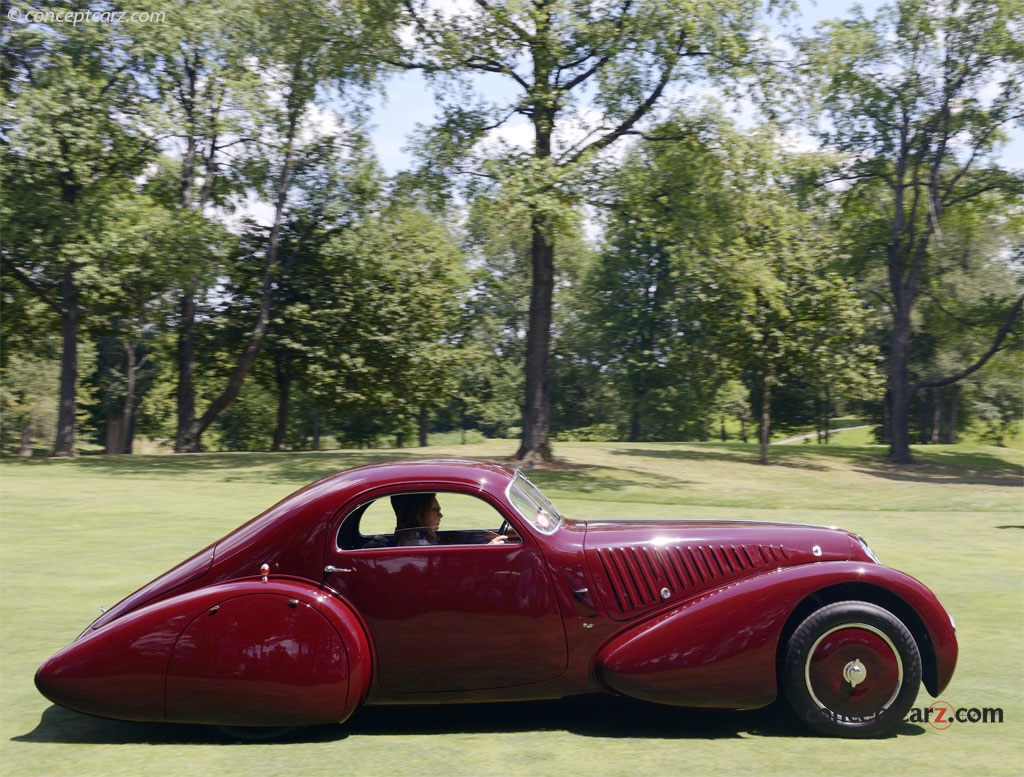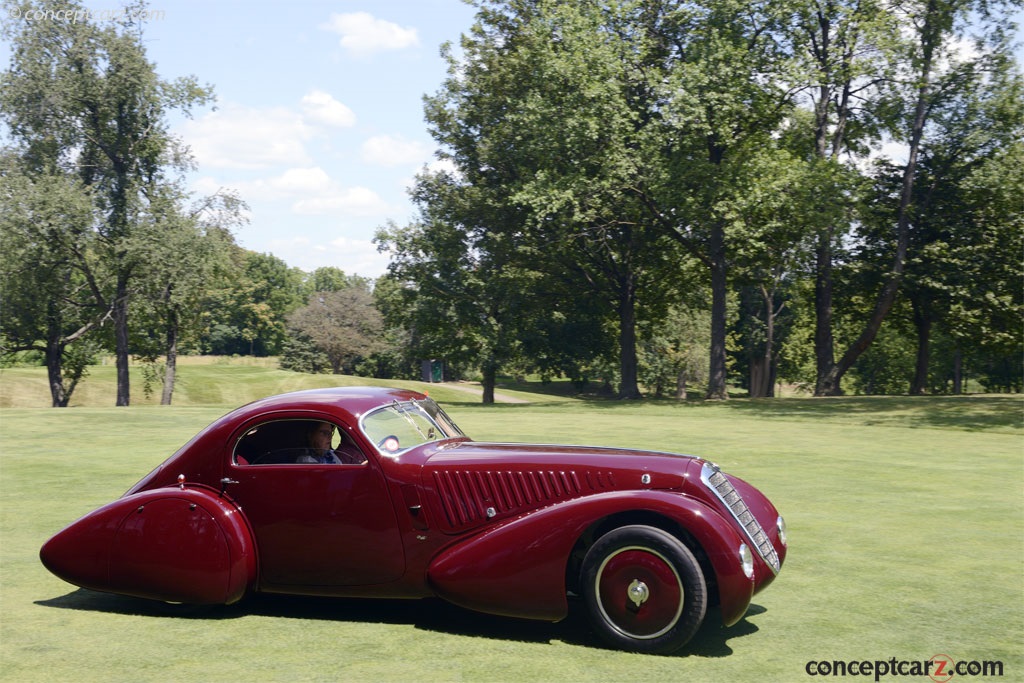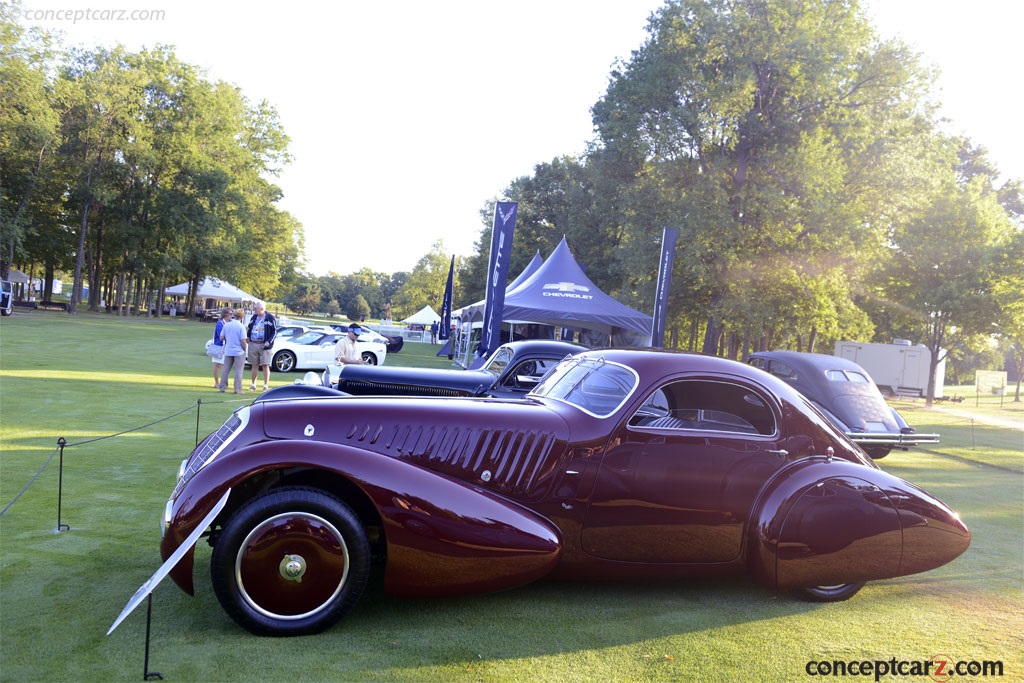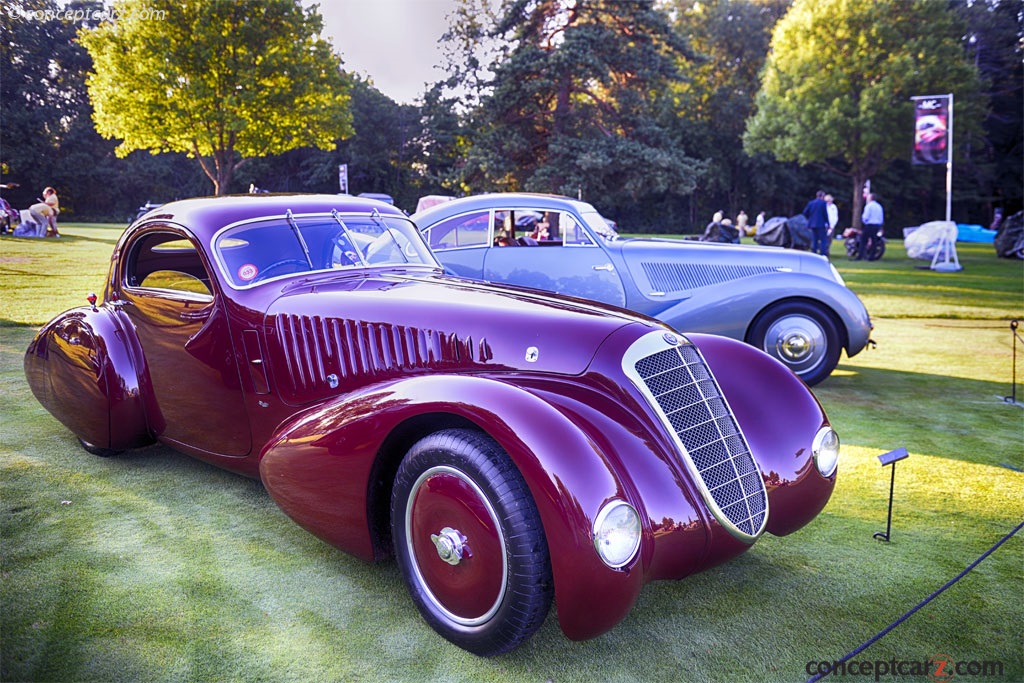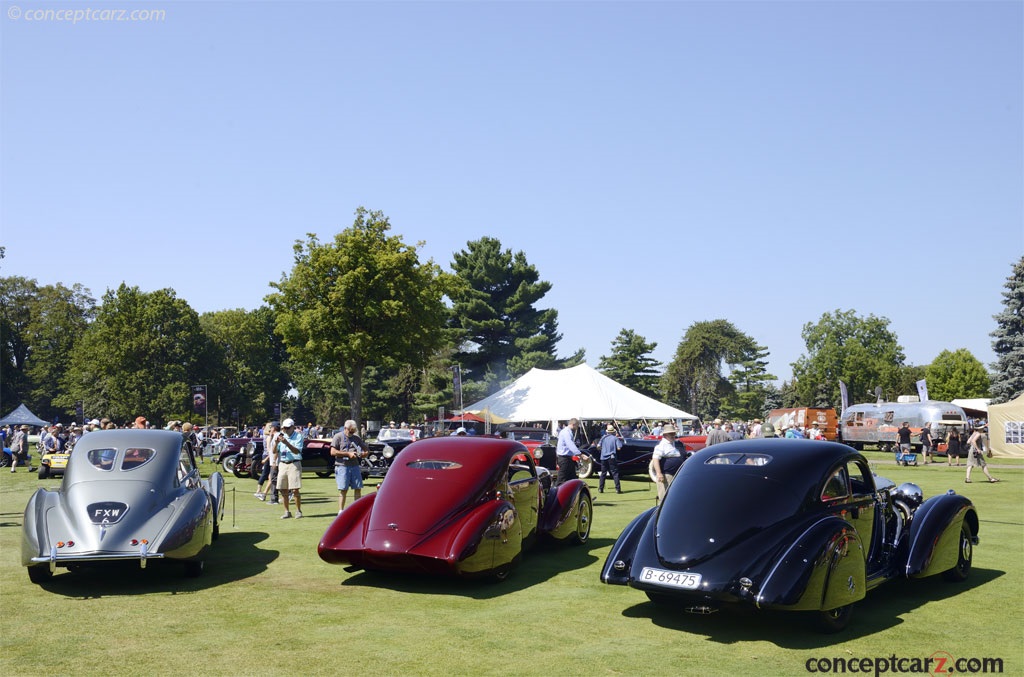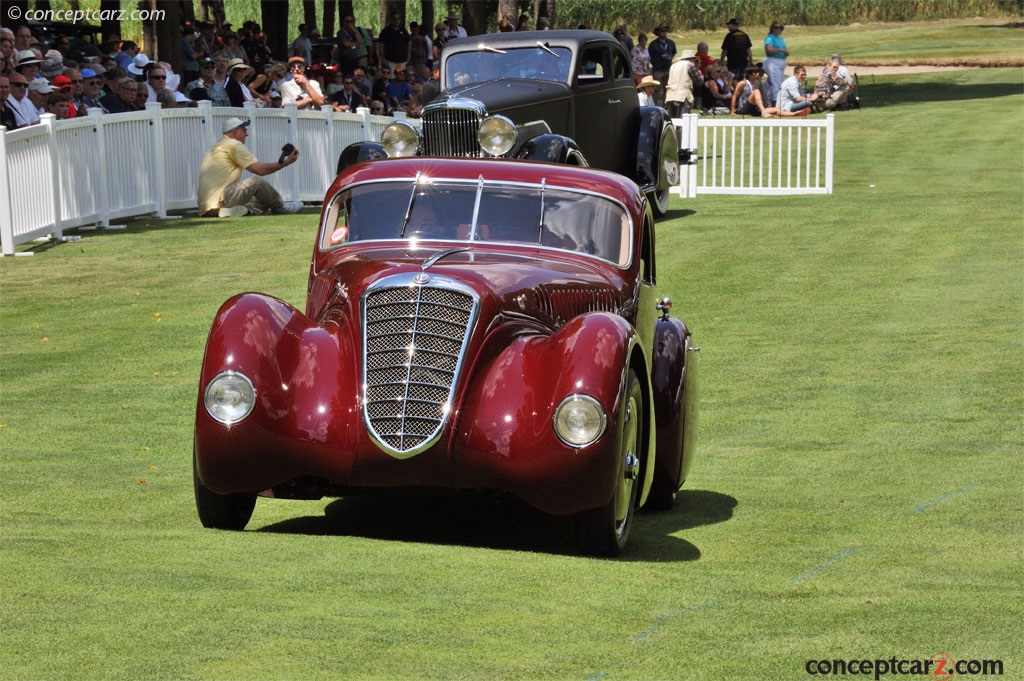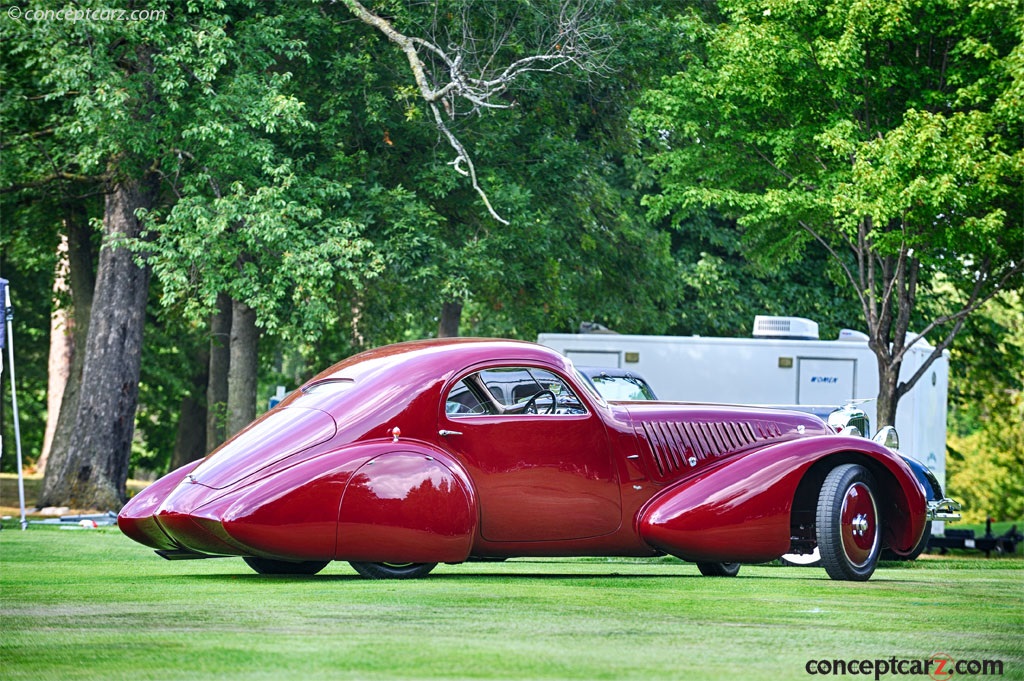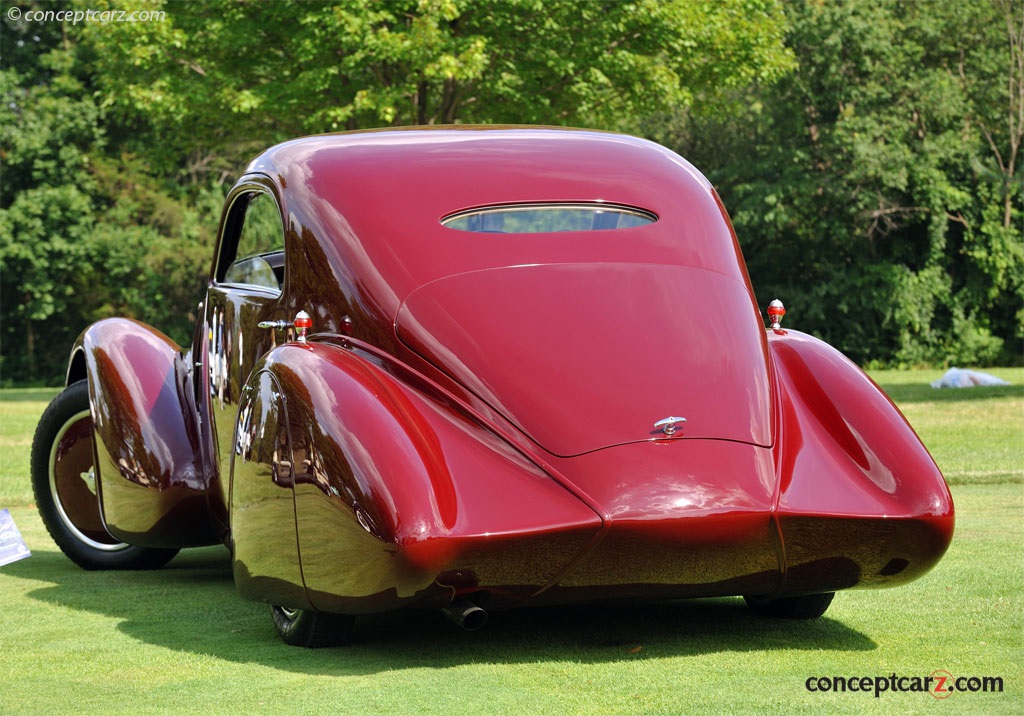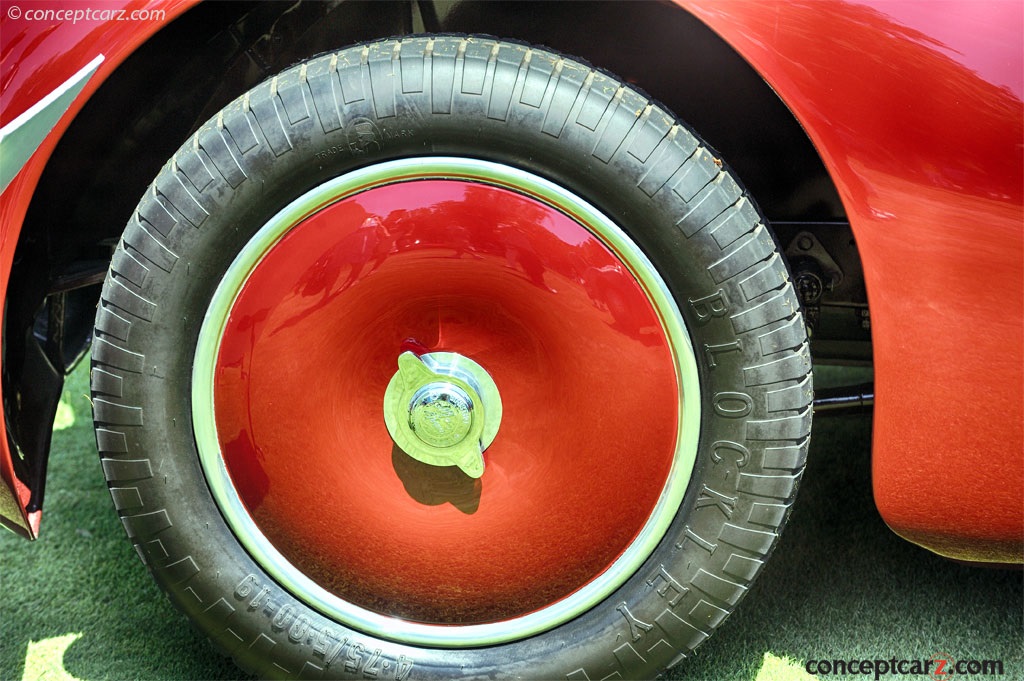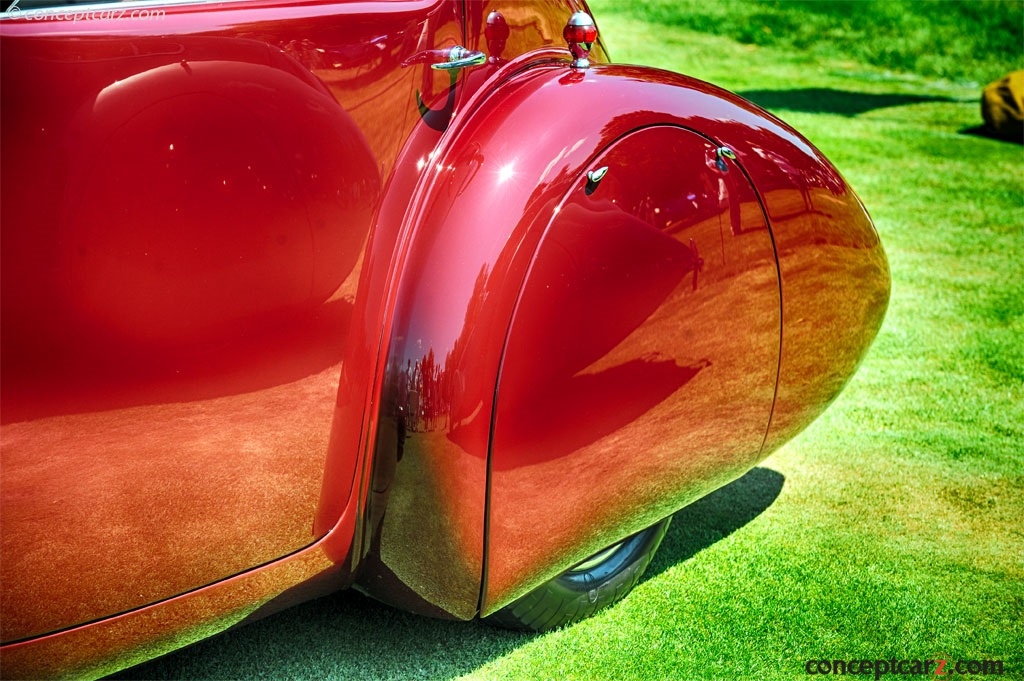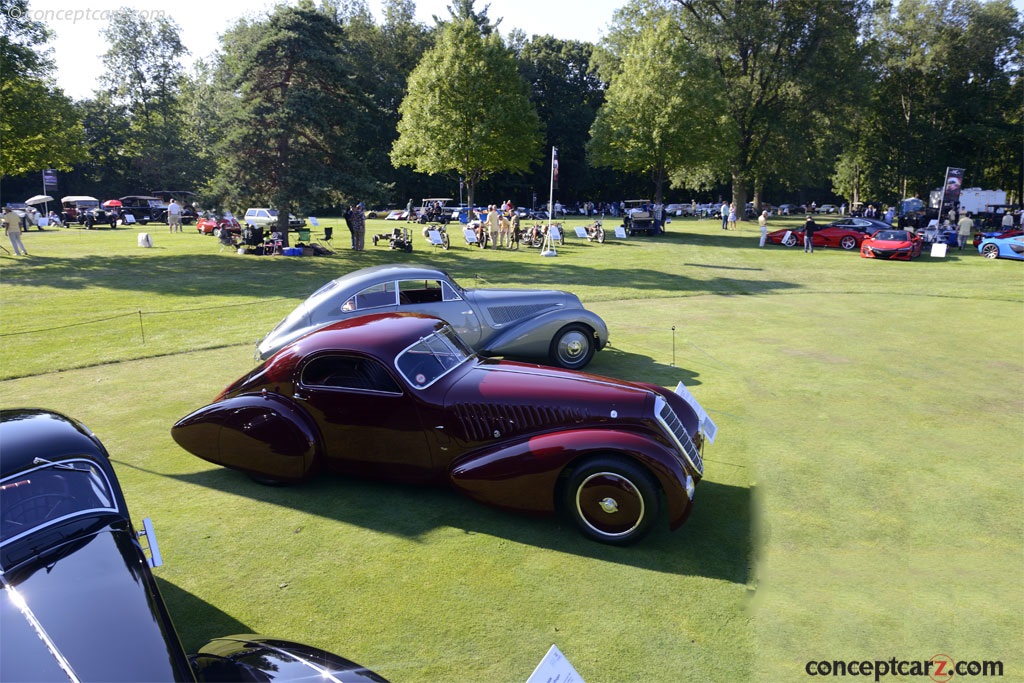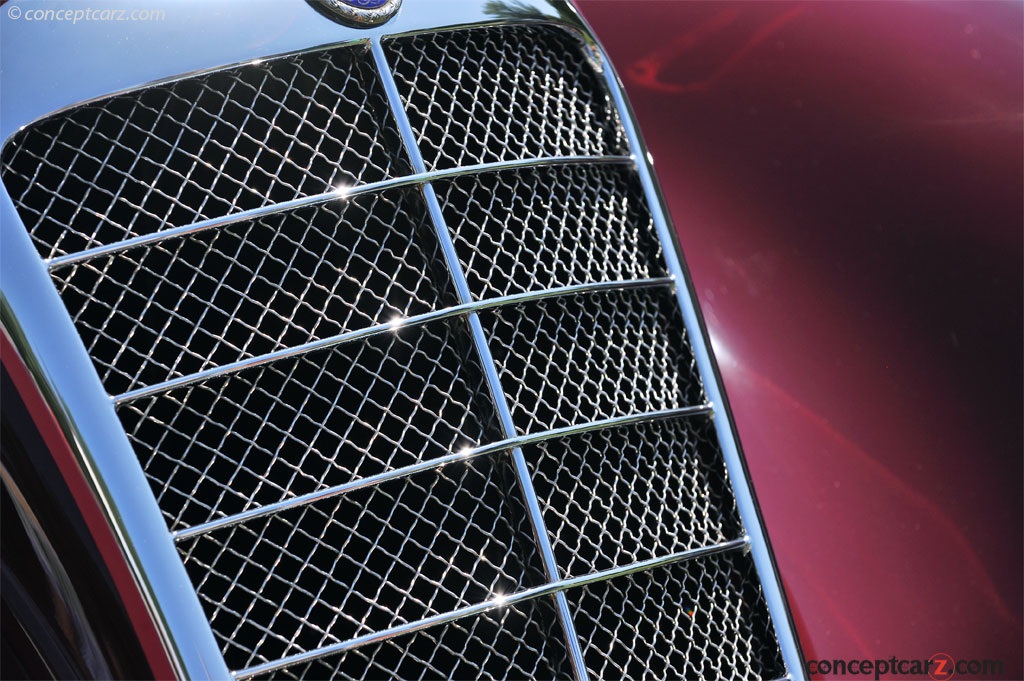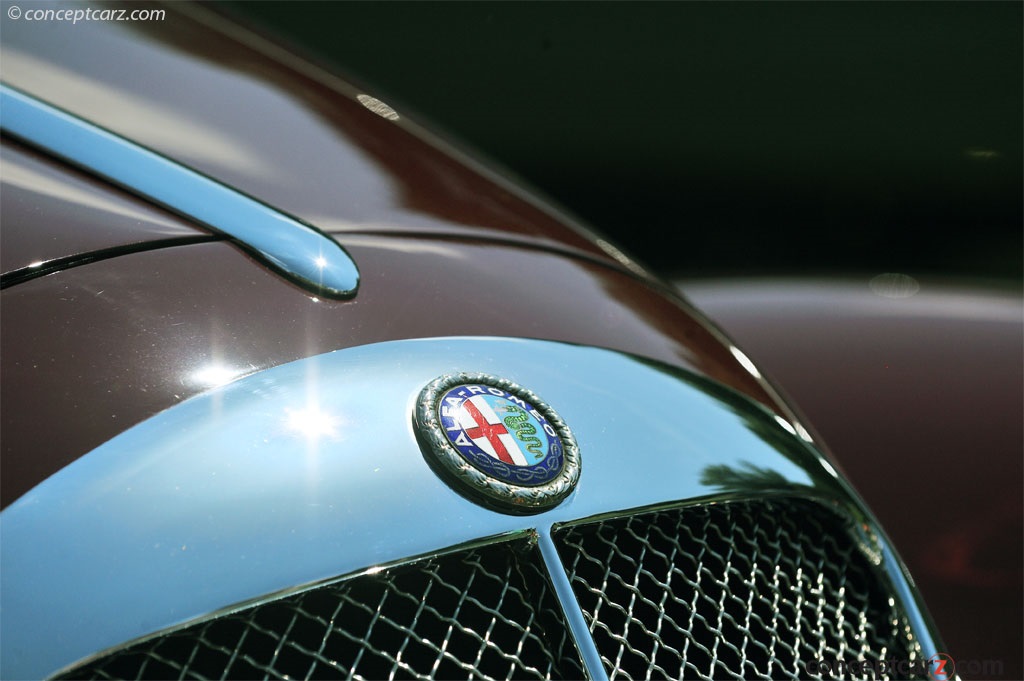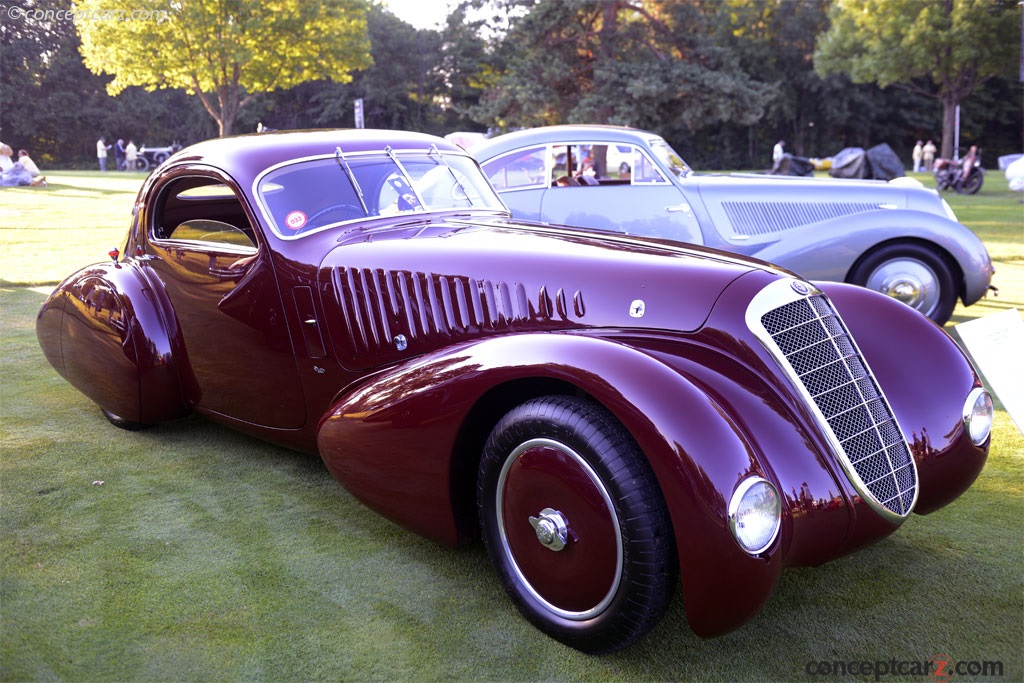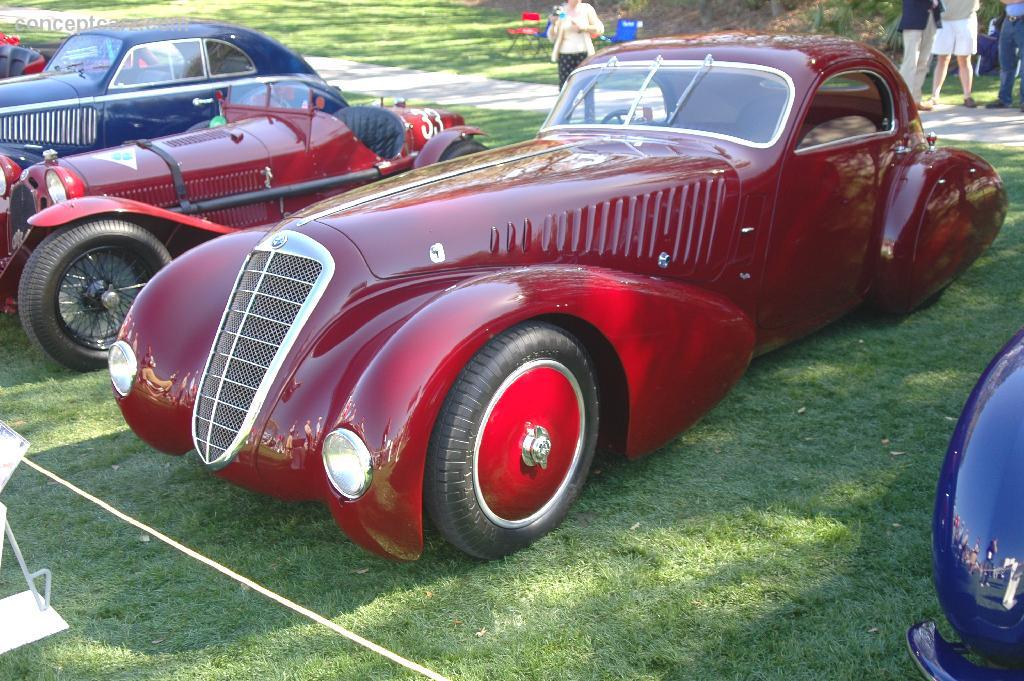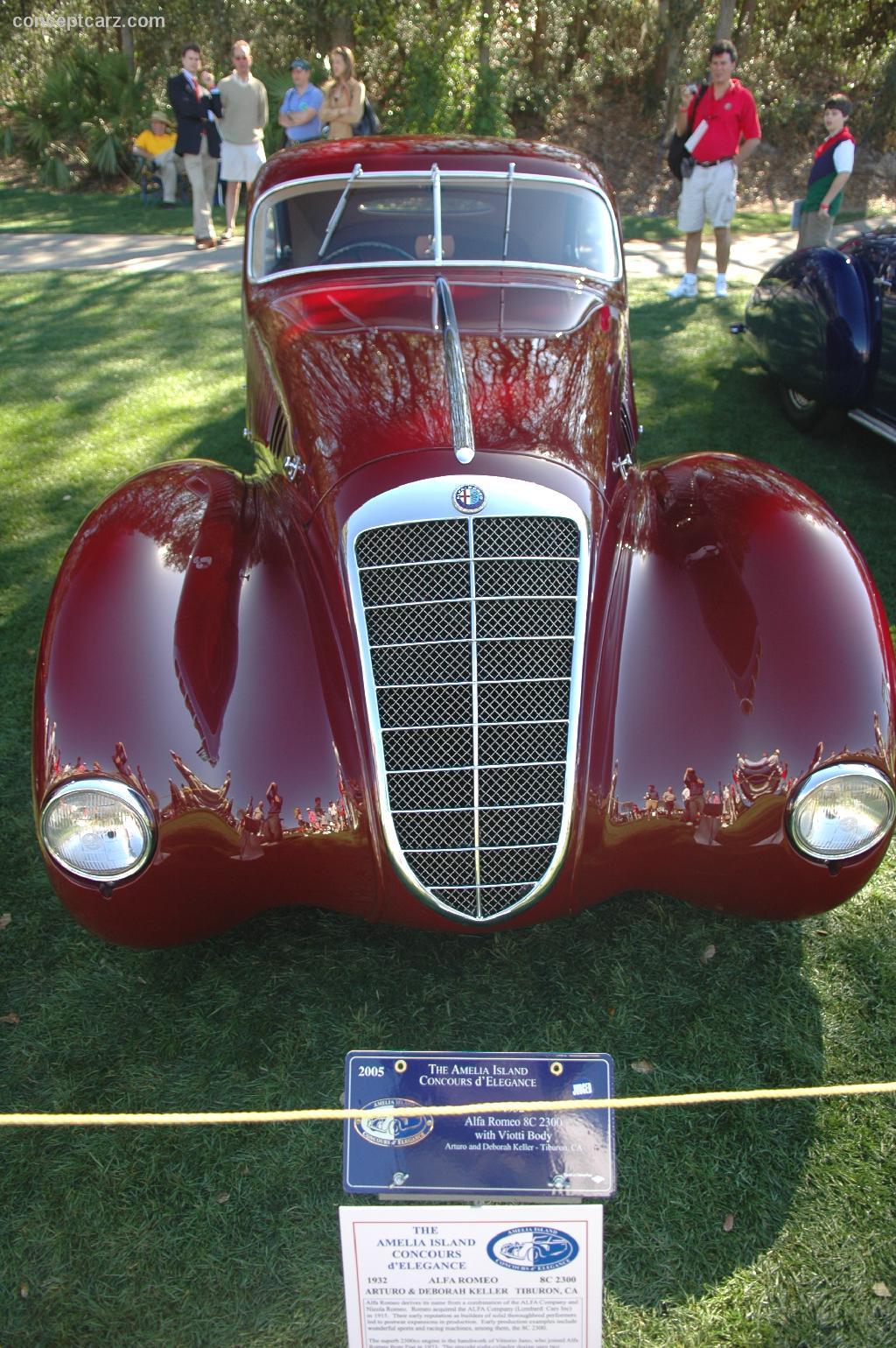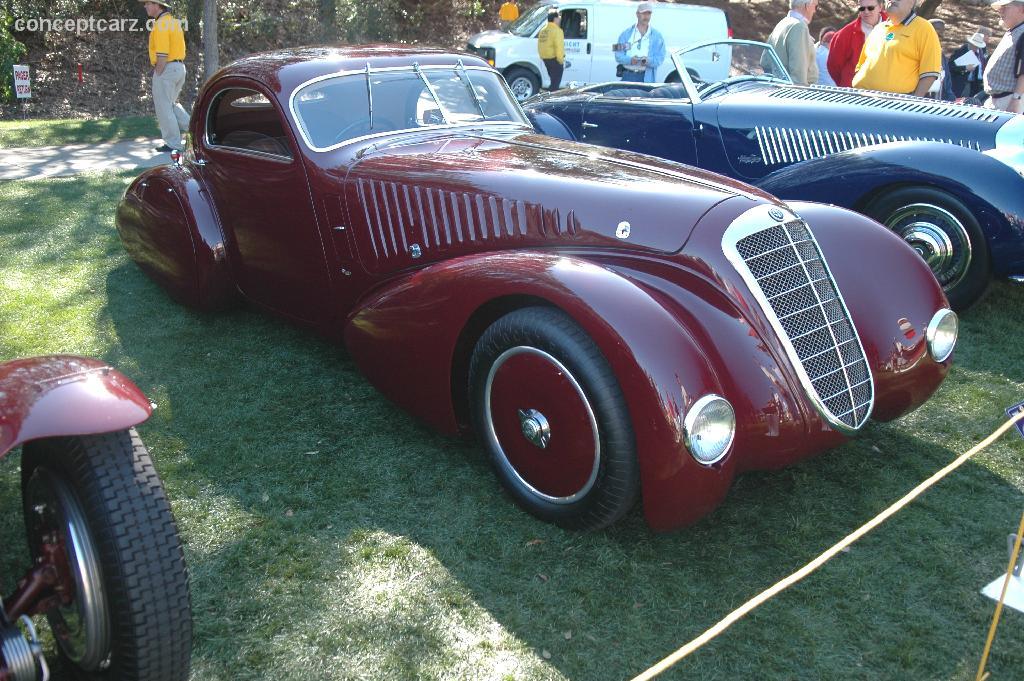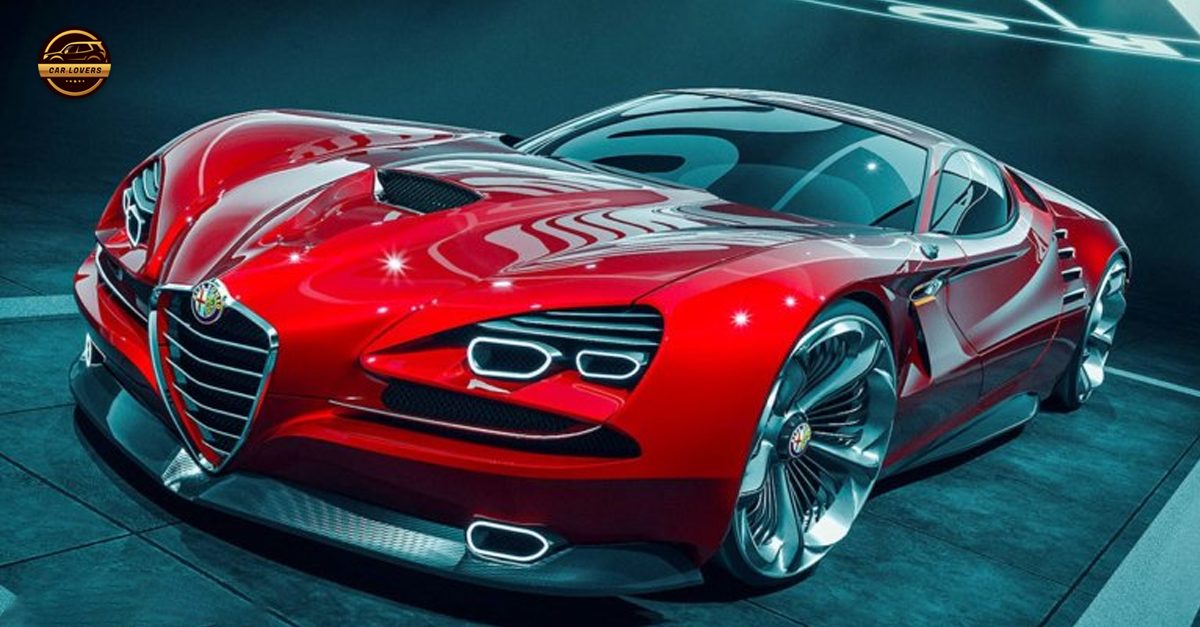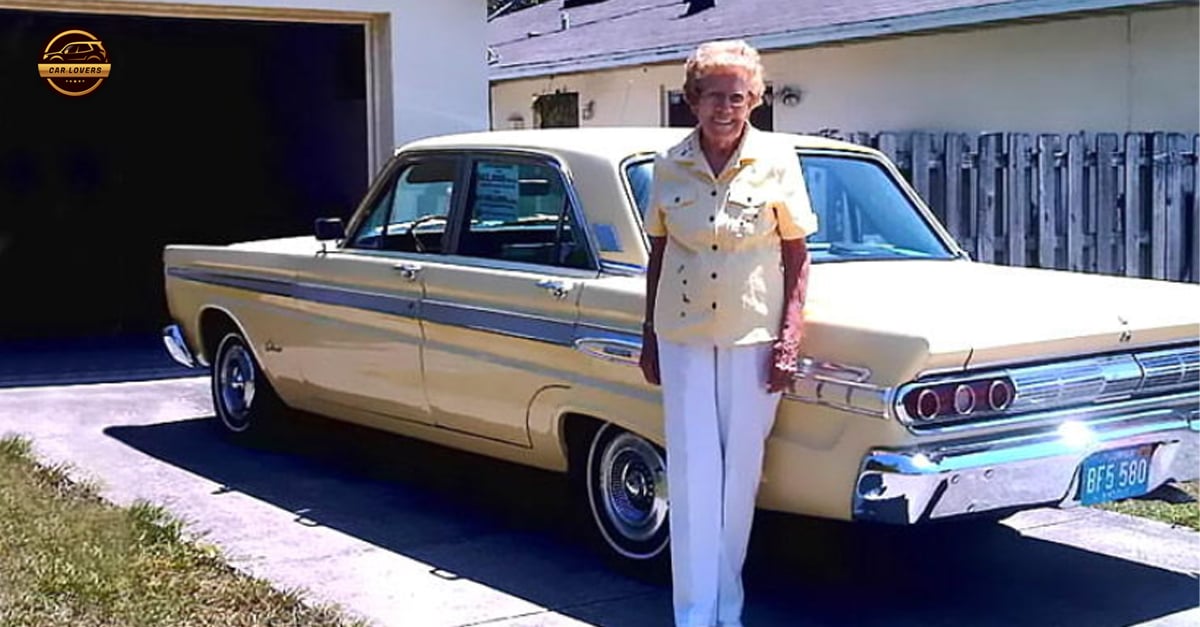Alfa Romeo derives its name from a combination of the ALFA Company and Nicola Romeo. Romeo acquired the ALFA Company (Lombard Cars Inc) in 1915. Their early reputation as builders of solid thoroughbred performers led to postwar expansion in production. Early production examples include wonderful sports and racing machines, among them, the 8C 2300.
The superb 2300cc engine is the handiwork of Vittorio Jano, who joined Alfa Romeo from Fiat in 1923. The straight eight-cylinder design uses two identical four-cylinder blocks, with a dry sump oiling system. The two-piece crankshaft rides on ten bearings and has camshaft and supercharger drives located mid-block. It produces 142 horsepower at 5,000 rpm and feeds a four-speed gearbox. There are large finned drum brakes at each corner.
The cliché ‘larger than life’ is one way to describe this aerodynamically beautiful Viotti Coupe. It was originally built as a Touring bodied 8C 2300 Long Chassis sports racer to compete at LeMans, where it ran and finished third in 1933, driven by Brian Lewis & Rose-Richards. It also raced in the Tourist Trophy.
During this period, it was common that race cars had their bodies changed. Many were sold after retirement from racing to new owners and fitted with specially designed one-off coachwork. That is exactly what happed with this 8C. Upon its return to Italy in 1935 it was transformed into a streamlined coupe by Carozzeria Viotti S.A. of Turin, using the design of Mario Revelli di Beaumont, whose work was scientifically based on aerodynamic principles. Notice the convex windscreen, integrated headlights and downward sloping rear end. The ‘Viotti’ participated in the 2016 Concours of Elegance at Windsor Castle.
The car has a documented history, uses all the original parts, chassis and spectacular Viotta coachwork. It is the only 8C 2300 with Viotti coachwork.
